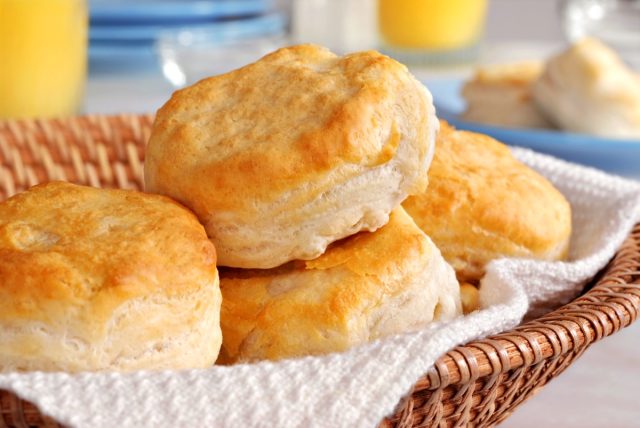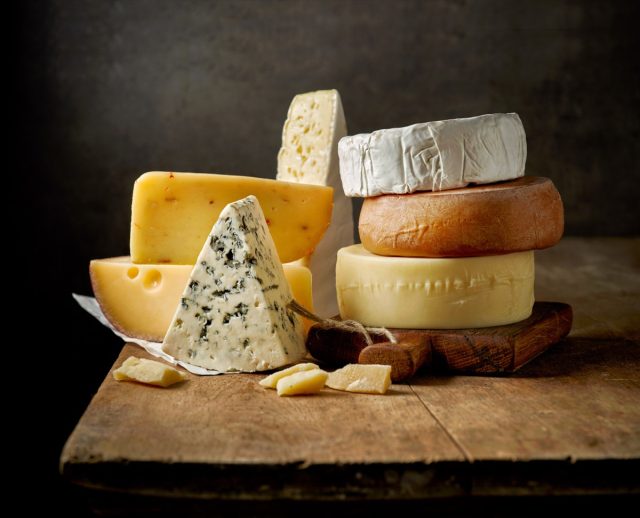These Foods May Clog Your Arteries if You’re Eating Them All the Time

Research shows there are foods that may clog your arteries if you’re eating them all the time, and knowing which to avoid or limit may save your life. Clogged arteries happen when plaque builds up and restricts the blood flow to tissues and vital organs in the body. The condition is called atherosclerosis and it can affect almost every part of you, “including arteries in the heart, brain, arms, legs, pelvis, and kidneys. It has different names based on which arteries are affected,” the National Heart, Lung, and Blood Institute states. “The disease linked to atherosclerosis is the leading cause of death in the United States. About half of Americans between ages 45 and 84 have atherosclerosis and don’t know it.”
Atherosclerosis is deadly and dangerous, but can be prevented. Food choices contribute greatly to the condition and Tomi Mitchell, a Board-Certified Family Physician with Holistic Wellness Strategies tells us, “Eating healthy foods is key to preserving our long-term health. As time passes, the food choices we make can have a greater impact than we might think; it’s not just about maintaining a healthy weight or having an attractive physique. Clogged arteries can lead to many health issues and should not be taken lightly.”
Clogged arteries are a silent killer and usually don’t show signs until a major health issue like heart problems such as coronary artery disease, heart failure, stroke, and even death happen. It’s always advised to keep your routine doctor visits and Dr. Mitchell explains, “If identified early enough, exercise and lifestyle changes can help reduce the risk of the blockage before more significant damage is done.” Limiting and avoiding certain foods can help reduce the risk of atherosclerosis, as well as keep cholesterol in check. Read on to discover all five on this essential list.
Bacon

Dr. Mitchell says, “Bacon has been beloved for its unique and delicious taste for centuries, but few people realize the health risks that can accompany over-indulging in bacon. Bacon may have such a high-fat content that it can lead to blocked arteries. High saturated fat levels promote inflammation which can cause dehydration of skin cells and contribute to atherosclerosis, which is the gradual narrowing of blood vessels leading to heart attack or stroke. Therefore, it is important for us to be aware of how much bacon we are consuming as it is found in so many concocted and processed foods. From bacon bits used as toppings on salads to bacon and cheese sandwiches, this type of meat is present in a wide array of dishes. Making good choices now can help you avoid serious medical consequences later in life.”
She adds: “Another big health risk associated with bacon is that it can be high in sodium. Most people are unaware of the high levels of salt and other preservatives found in bacon, leading them to consume far too much of it without realizing their daily intake has gone far beyond their recommended limits. This can lead to a range of problems such as water retention, and the elevation of blood pressure.”
Butter

Dr. Mitchell says, “Butter is a delightful way to flavor food and its versatility makes it an obvious staple in most kitchens. It can be used for everything from baking decadent treats to adding flavor to savory dishes. However, the downside of using butter is that its high levels of saturated fat can lead to clogged arteries and undesirable cholesterol levels if consumed without moderation. Therefore, moderation is key when it comes to butter consumption. No matter how delicious butter is, knowing the health risks associated with it will help keep your body healthy and ready for anything!
If you’re looking to reduce the amount of butter you consume or find healthier substitutes, there are several options open to you. One option is switching to a low-fat dairy spread with reduced saturated fat content. There are also vegan spreads that are specifically designed to be swapped out in recipes, such as margarine made from nuts, seeds, and even plants such as olive oil. Additionally, if a recipe calls for melted butter, applesauce or mashed banana can also be used – many cooks swear by using bananas when baking cakes, muffins, and other sweet treats. If all else fails, substituting half the amount of butter called for in the recipe with extra virgin olive oil is another way to reduce your saturated fat intake. Ultimately, it just takes a bit of experimentation (and creativity!) to find what works best for you.”
Biscuits

Dr. Mitchell explains, “Biscuits are eaten all over the world, as a tasty side for lunch and dinner or as a snack throughout the day. While they may look small and harmless, biscuits are often very calorie dense, making them an important part of any healthy eating plan. Unfortunately, ingredients like butter, cream, salt, and sugar make these treats high in saturated fat and sodium, two things that can increase your risk of developing cardiovascular disease if eaten in excess. Eating too many biscuits also means you’re more likely to be consuming sources of trans fats which have been linked with hardened arteries and other health consequences. All in all, it’s important to remember that biscuits aren’t inherently bad – just like anything else they need to be consumed in moderation to keep your diet balanced.
Eating biscuits can be a great way to indulge and energize yourself, however, if your goal is to maintain a healthy lifestyle you might want to make some changes to the way you enjoy them. A simple suggestion would be to choose whole wheat biscuits or those made from other heart-healthy grains over traditional ones. You could also combine these healthier biscuits with options that add nutritional value, such as fresh fruit and low-fat yogurt. To further slash your calorie intake you could opt for smaller varieties such as shortbread cookies or fig bars. With these smart swaps, you’ll be able to create a snack that is still indulgent but much better for your health.”
Whole Milk and Cheese

According to Dr. Mitchell, “Whole milk and cheese present a real health challenge for individuals and society as milk products are so frequently used in many of the foods we eat. Eating too much of these products can lead to blocked arteries, which is a major cause of stroke and heart attack- two of the leading causes of death in both developed and developing countries. That’s why it’s important to understand exactly how much milk and cheese you should be consuming each day before returning to your normal diet. Health experts suggest limiting dairy intake to no more than 2 servings per day while replacing much of it with healthy alternatives such as soy milk or almond milk. Taking the time to balance our diet with healthy nutrition choices can go a long way toward helping us stay fit, active, and healthy.
Reducing the amount of full-fat milk and dairy products in our diet can be a great way to improve our overall health. One effective strategy is reducing portion sizes. For example, instead of eating a regular cup of yogurt daily, we could choose a single-serve portion size instead. We could also opt for low-fat versions of popular dairy products such as skim milk or Greek yogurt with high protein content but less fat. Additionally, non-dairy alternatives like soy, coconut, oat, or almond milk provide an equally tasty substitution without the extra saturated fat and cholesterol found in traditional dairy. Furthermore, swapping out full-fat cheese for goat cheese made from reduced-fat milk can cut down on fat intake while adding a delicious flavor to meals.”
Fried Foods

Dr. Mitchell shares, “Deep frying food is a common way to prepare meals quickly, but it can pose major risks to your health. Deep frying food coats the food in unhealthy grease and oil that encourages the clogging of arteries. The amount of fat and cholesterol in fried foods spikes drastically which can lead to increased blood pressure and an increased risk of heart disease and stroke. Furthermore, fried foods usually require twice or even three times as much oil as other cooking methods which can make the meal packed full of calories rather than nutrition. It’s important to remember that moderation is key when consuming fried foods – moderation allows us to benefit from certain flavors without sacrificing our health.
One great way to indulge in fried foods without having to worry about the artery-clogging oils or inflammation it can cause is by baking instead of frying. Baking provides an easy and fast alternative that results in just as good of a taste. Additionally, air-frying and oven-roasting are also excellent ways to enjoy fried food flavors, both healthier options due to the decreased use of oil. Sautéing is another healthy alternative that lets you get creative with your ingredients! Finally, incorporating spices and herbs is a fool-proof way to always have tasty dishes regardless of the cooking method used. These strategies provide a wonderful balance between indulging cravings and enjoying healthy foods.”








